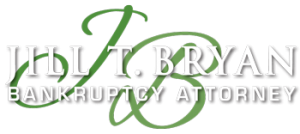Ten Things to Think About Before Using Your Credit Card
1. Establish a realistic budget.
Before using a credit card after bankruptcy, try paying cash for a while. This will help you learn how much money you need each month to pay the basic necessities. Don’t forget to budget for the payments on any debts you reaffirmed in your bankruptcy.
2. It is important not to use credit cards to make up for a budget shortfall.
Credit card debt is expensive. Sometimes credit cards are so easy to use that people forget they are loans. Be sure to charge only things you really need and plan to pay the balance off in full each month. If you find you are constantly using your card without being able to pay the bill in full each month, you need to consider that you are using cards to finance an unaffordable lifestyle.
3. If you get into financial trouble, do not make it worse by using credit cards to make ends meet.
If you find that you are using credit cards to get through a period of financial difficulty, it is likely that additional credit will only make things worse. For example, if you use cash advances on your credit card to pay bills, the interest due will only add to your debt burden sooner rather than later.
4. Don’t get hooked on minimum payments.
Credit card lenders usually offer an optional ‘‘minimum payment’’ in their monthly billing. These are usually set very low (usually 2 percent of the balance), barely covering the monthly interest charge. If you pay only the minimum, chances are that you will be paying your debt very slowly or not at all, and you may think you are managing the debt when you are really getting in over your head. For example, if you make only the monthly minimum payments to pay off a $1000 balance at a 17 percent interest rate, it will take over 7 years to pay your debt! If you are also making new purchases every month while making minimum payments, your debt will grow and take even longer to pay off. This means that your monthly interest obligations will increase and you will have less money in the monthly budget for necessities.
5. Don’t run up the balance based on a temporary ‘‘teaser’’ interest rate.
Money borrowed during a temporary rate period of 6 percent is likely to be paid back at a much higher permanent rate of 15 percent or more. Also be careful about juggling cards to take advantage of teaser rates and balance transfer options. It takes a great deal of time and effort to take advantage of terms designed to be temporary. Remember that all teaser rate offers are designed to get you locked into the higher rate for the long term, because that is how the lender makes the most money.
6. Avoid the special services and programs credit card lenders offer to bill to your card.
You are likely to get many mail offers and telemarketer calls from your credit card lender about special services such as credit card fraud protection plans, credit report protection, travel clubs, life and unemployment insurance, and other similar offers. These products are generally overpriced. It is best to throw out and refuse these offers, or at a minimum, treat them with a high degree of caution. And avoid ‘‘free trial’’ offers as you will be billed automatically if you forget to cancel the service.
7. If you can afford to do so, always make your credit card payments on time.
Be careful to avoid late payment charges and penalty rates if you can do so while still paying higher priority debts. Bad problems get worse fast when you have a new higher interest rate and late charge to pay during a time of financial difficulty. Most lenders will waive a late charge or default interest rate one time only. It is worth calling to ask for a waiver if you make a late payment accidentally or with a good excuse.
8. Know exactly when the grace period ends.
The grace period usually ends on the payment ‘‘due date,’’ which may change every month. Many lenders do not mail bills until late in the grace period, so your payment may be due quite soon after you receive the bill. This also means that the grace period may be less than a full month, usually about 20-25 days. Some lenders are slow in posting payments or have strange rules about deadlines (like payments received after 10:00 a.m. on the due date are considered late). Try to mail your payment well before the due date so there will be no question it gets there on time. Paying credit cards on time not only saves you interest and late fees but is a good way to improve your credit rating after bankruptcy.
9. Beware of unsolicited increases by a credit card lender to your credit card limit.
Some lenders increase your credit limit even when you have not asked for more credit. Avoid using the full credit line as your debt can easily spiral out of control. And going over the credit limit even by a few dollars can be very costly as you will likely be charged an over-the-limit fee and a higher penalty interest rate.
10. If you do take a credit card and discover terms you do not like: cancel!
You can always cancel any credit card at any time. Although you will be responsible for any balance due at the time of cancellation, you should not keep using a card after you discover that its terms are unfavorable.
Contact
Jill T. Bryan, Esq.
Attorney at Law
900 Route 168, Suite A-4
Turnersville, NJ 08012
p: (856) 227-2000
f: (856) 227-2212
